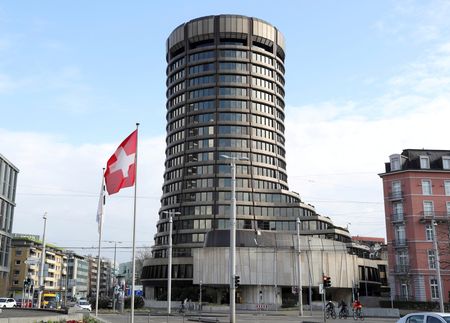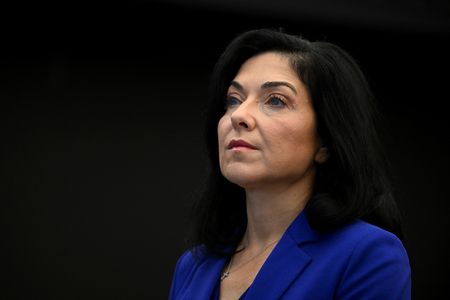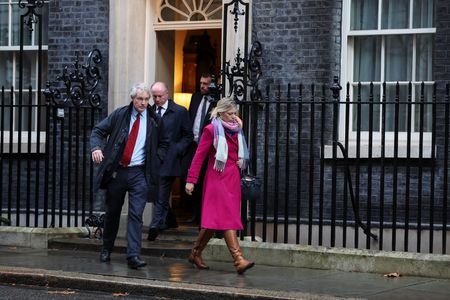By Marc Jones
LONDON (Reuters) -The Bank for International Settlements has warned that record global share prices appear increasingly disconnected from the rising concerns about government debt levels in the bond markets.
The BIS, which acts as an umbrella group for the world’s central banks, said the rise in the premium investors demand to buy the 30-year debt of top economies this year showed “mounting concerns about the fiscal outlook”.
Earlier this year Moody’s became the last of the main credit rating agencies to strip the United States of triple A status, while France on Friday had its rating cut to its lowest ever level by Fitch over concerns about government finances.
“This is a time to be watchful of potential amplification channels that could propagate stress,” the head of the BIS’ Monetary and Economic Department Hyun Song Shin said, adding that the elevated valuations of risky assets leave them vulnerable.
He also highlighted how government bond issuance was increasingly being absorbed by highly-leveraged investors such as hedge funds and that markets can erupt, “well before debt levels exceed textbook definitions of sustainability”.
Meanwhile, U.S. trade tariff impacts have been smaller than expected so far and there was no evidence yet of global investors materially shifting away from U.S. assets.
While some non-U.S. investors sold significant volumes of U.S. bonds and stocks in April, the BIS said most of the flows had reversed in May and June.
“The outsize holdings of U.S. assets by global investors, coupled with the slow pace of strategic asset allocation decisions and mandates, indicate that any significant portfolio shift away from U.S. assets is likely to be gradual,” it added.
COVID IMPACT ON INFLATION EXPECTATIONS
The report also included the first installment of a new global survey of public inflation expectations being compiled by the BIS.
Looking at 13 advanced and 18 emerging market economies, it showed how the post-COVID spike in global prices has fundamentally pushed household inflation expectations higher, especially in countries that saw the biggest increases.
It “raises concerns about the lasting effects of temporary inflation surges”, the BIS said, adding that households generally didn’t blame central banks for the inflation issues and backed the idea of them being independent from governments.
Back on the current outlook, Shin said there was now a cooling of the real economy taking place, especially in places like the U.S. labour market.
If that continues, the market reaction will need to be watched “very carefully”, he said, given that stock market valuations are now close to dot.com bubble levels and corporate bond spreads very tight.
Moves in the dollar do not “square well” with interest rate differentials, the BIS said, while the currency’s bounce in July came when equity markets were making strong gains – a correlation that also doesn’t often occur.
“The potential unwinding of these very ample financial conditions is something that we should all be looking out for,” Shin said.
(Reporting by Marc Jones; Editing by Kirsten Donovan)










